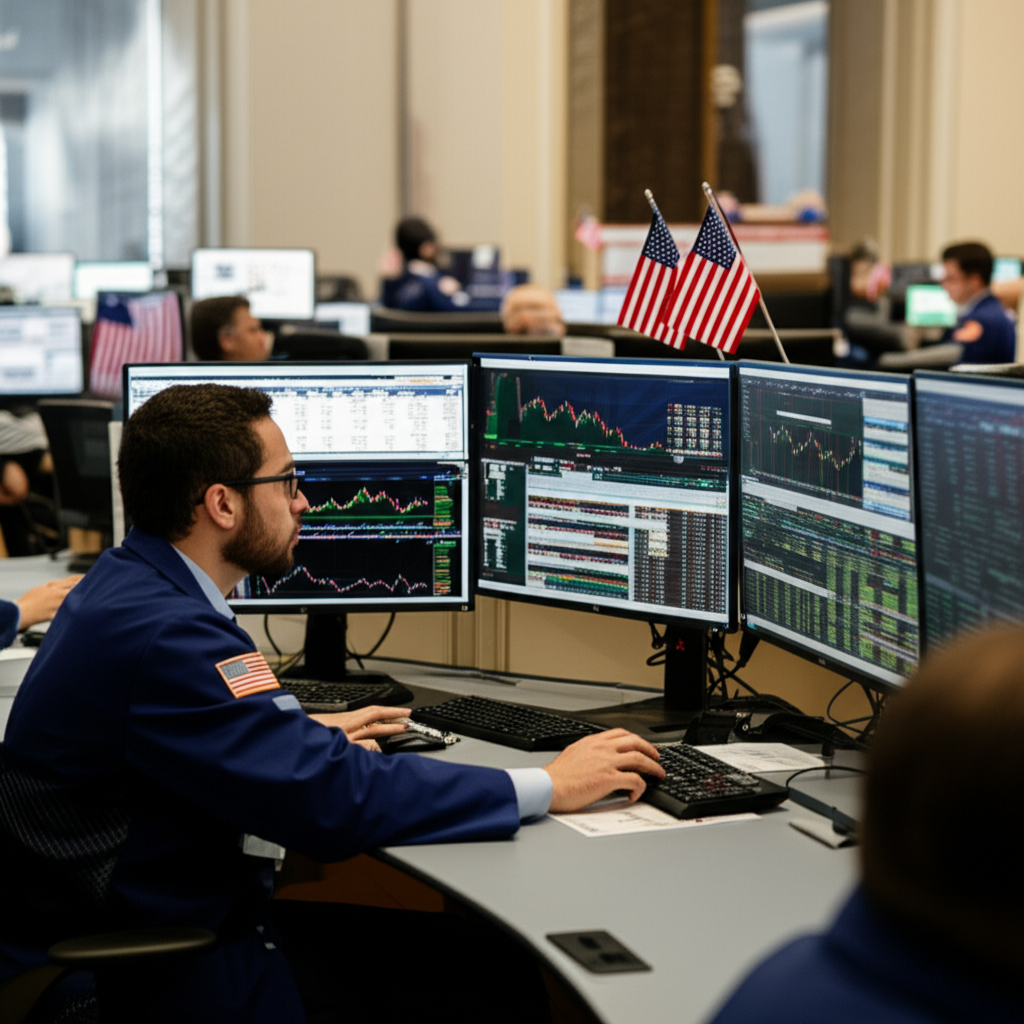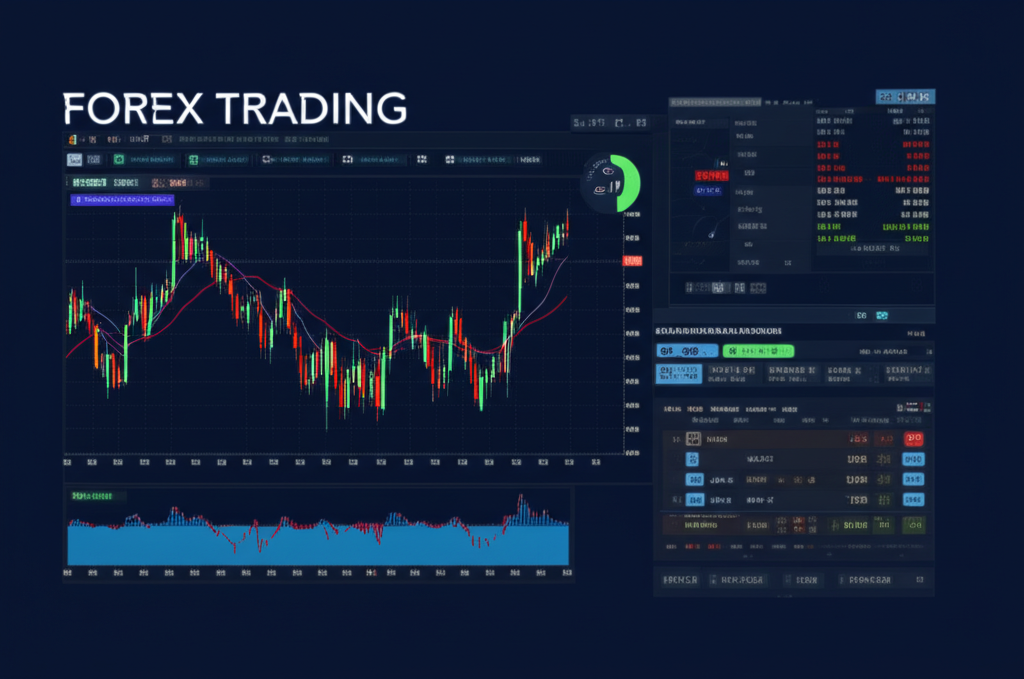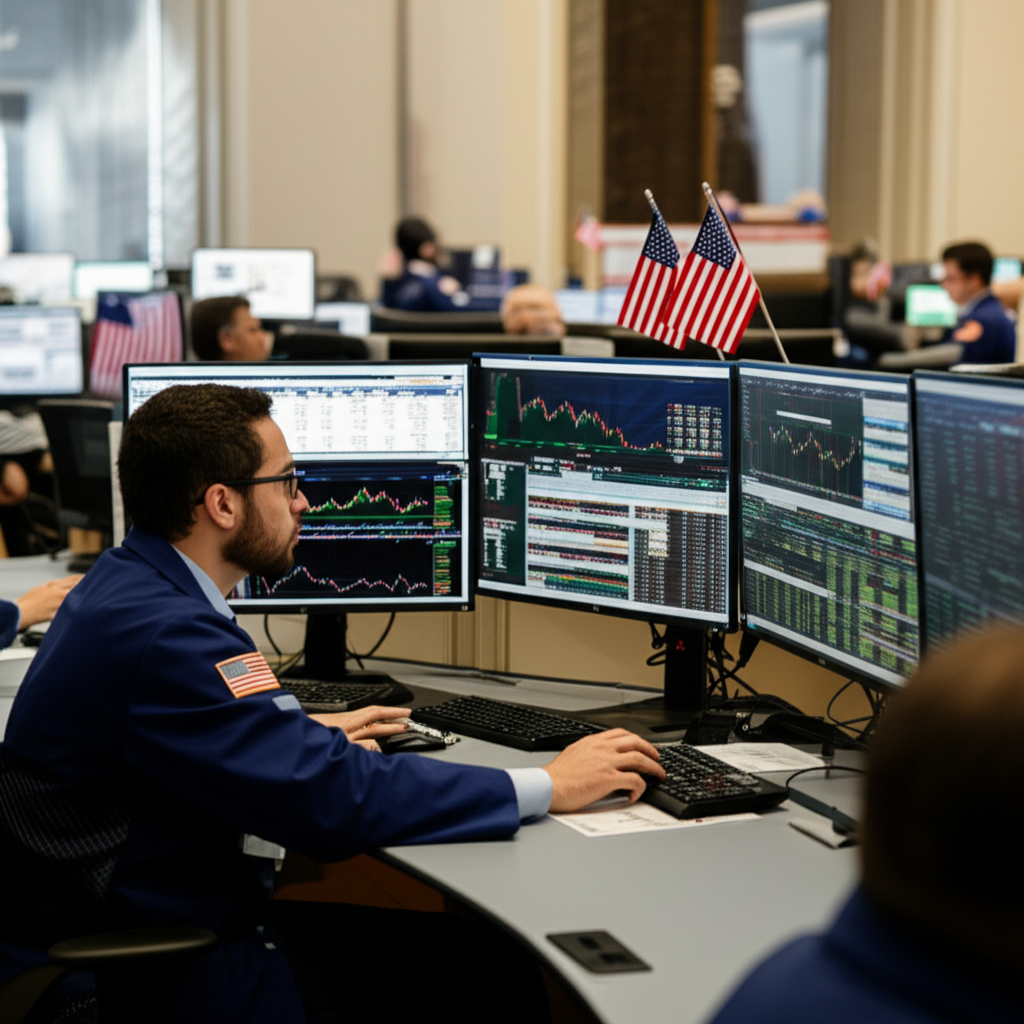Navigating the Complexities of Forex Trading for US Traders in 2025

For American investors stepping into the fast-moving world of foreign exchange, understanding the regulatory, financial, and technological landscape is essential. The United States maintains one of the strictest oversight frameworks for forex trading globally, meaning that US-based traders must be especially cautious when choosing a broker. Security, compliance, execution quality, and transparency aren’t just preferences—they’re necessities. As we move through 2025, retail traders are prioritizing platforms that combine competitive pricing, cutting-edge tools, responsive support, and most importantly, credible regulation.
Whether you’re new to currency trading or an experienced participant looking to optimize your setup, finding the right broker can significantly influence your long-term success. With leverage limits, FIFO rules, and tax implications shaping the environment differently than in other regions, domestic regulations play a defining role. At the same time, some US citizens—particularly those living abroad—are exploring internationally regulated brokers that offer broader asset access and different trading conditions.

This guide dives deep into the top forex brokers available to US traders in 2025, analyzing each based on real-world performance, regulatory standing, trading costs, platform capabilities, and user experience. We’ll also break down how US-specific rules affect your strategies, clarify tax obligations, and help you make a confident, informed decision tailored to your goals.
Our Methodology: How We Ranked the Top US Forex Brokers for 2025
Selecting the best forex brokers for US traders requires more than just surface-level comparisons. Our evaluation process combines objective data analysis with practical insights drawn from trader feedback, regulatory audits, and hands-on testing. Each broker was assessed across eight core criteria to ensure a balanced and comprehensive ranking.
- Regulatory Compliance and Safety: Above all, we prioritize brokers operating under full oversight by the National Futures Association (NFA) and the Commodity Futures Trading Commission (CFTC). For international options accessible to US expats, we verify regulation by top-tier authorities such as the UK’s Financial Conduct Authority (FCA), ensuring investor protection standards remain high.
- Trading Costs: We analyze average spreads, commission structures, swap rates, and any hidden fees. Lower trading costs directly increase net profitability, especially for active and high-volume traders.
- Trading Platforms and Tools: We evaluate platform stability, ease of use, charting depth, technical indicators, order execution speed, and automation features. Brokers offering MetaTrader 4, MetaTrader 5, cTrader, or powerful proprietary systems score higher.
- Range of Tradable Assets: While forex is central, access to related markets—like commodities, indices, and cryptocurrencies—adds value. We assess breadth and relevance, particularly noting differences between US-regulated and international brokers.
- Customer Service: Support availability (24/5 or 24/7), responsiveness across live chat, phone, and email, and multilingual options are critical, especially during volatile market events.
- Account Types and Minimum Deposits: Flexibility matters. We consider account variety—standard, ECN, micro—and initial funding requirements to determine accessibility for beginners and pros alike.
- Education and Research: From beginner tutorials to advanced market analysis, robust educational content enhances trader development. We favor brokers that invest in ongoing learning resources.
- Deposit and Withdrawal Process: Fast, secure, and fee-free funding methods with multiple options (bank wire, ACH, debit cards) improve the overall experience. We test processing times and ease of use.
By applying this structured approach, we ensure our recommendations reflect real-world usability, safety, and value for US traders across experience levels.
Top 5 Best Forex Brokers for US Traders in 2025
After rigorous testing and comparison, here are the leading forex brokers serving US clients in 2025, ranked based on performance, regulation, and trader satisfaction.
1. Moneta Markets: Premier International Choice for Diverse US Trader Needs
Moneta Markets has emerged as a top-tier international brokerage, offering a compelling alternative for US citizens residing overseas or seeking expanded trading opportunities beyond domestic restrictions. While not registered with the NFA or CFTC, Moneta Markets operates under the strict supervision of the UK’s Financial Conduct Authority (FCA), one of the most respected regulatory bodies in global finance. This ensures strong client fund protection, transparent business practices, and adherence to rigorous capital requirements—giving traders confidence even outside the US regulatory umbrella.
The platform stands out for its ultra-competitive pricing model, featuring razor-thin spreads starting from 0.0 pips on major currency pairs under its Raw ECN account. Its transparent fee structure, combined with no inactivity charges, appeals to both scalpers and swing traders. Execution speed is consistently fast, supported by direct market access through multiple liquidity providers.
Traders benefit from a diverse suite of platforms including MetaTrader 4, MetaTrader 5, cTrader, and Moneta Markets’ own intuitive web-based terminal. This flexibility allows users to match their technology to their strategy—whether relying on algorithmic trading via EAs or leveraging cTrader’s advanced order types.
Beyond forex, Moneta Markets offers exposure to over 1,000 instruments, including cryptocurrency CFDs, global stock indices, commodities like gold and oil, and individual stock CFDs. This breadth is particularly valuable for US expats who want to diversify beyond what’s typically allowed under NFA rules.
For American traders based abroad, Moneta Markets delivers a globally competitive environment with institutional-grade execution, multi-language support, and dedicated regional account managers. It’s especially well-suited for those who prioritize product range, low latency, and advanced tools without sacrificing regulatory credibility.
2. FOREX.com: Best Overall US-Regulated Broker
FOREX.com, operated by StoneX Group Inc., continues to lead the domestic market as a trusted, fully compliant broker for US residents. Holding registration with both the NFA and CFTC, it offers a secure gateway to the forex market with a proven track record spanning over two decades. The platform combines regulatory safety with strong functionality, making it ideal for traders at all levels.
It provides access to more than 80 currency pairs, including majors, minors, and select exotics. Spreads are competitive, especially on standard accounts, and active traders benefit from volume-based pricing incentives. The broker supports multiple trading environments: MetaTrader 4, MetaTrader 5, and its proprietary web and mobile platforms—all equipped with advanced charting, customizable layouts, and integrated news feeds.
One of FOREX.com’s standout features is its extensive educational ecosystem. From beginner guides and video courses to daily market commentary and economic calendars, it supports trader growth comprehensively. Its research team delivers actionable insights, helping users stay ahead of macroeconomic shifts.
With reliable 24/5 customer service and seamless integration with US banking systems, FOREX.com remains the go-to choice for traders who want a secure, well-rounded experience fully aligned with American regulatory standards.
3. IG US: Ideal for Advanced Traders & Platform Variety
IG US has solidified its position as a premier choice for sophisticated traders who demand precision, speed, and depth. As an NFA- and CFTC-regulated entity, it adheres to the highest US compliance standards while delivering a premium trading experience. Known for innovation, IG offers one of the most robust platform ecosystems in the industry.
Its award-winning proprietary platform features advanced charting with over 100 technical indicators, real-time depth of market data, and highly customizable interfaces. Alongside this, IG supports MetaTrader 4 and a modern web-based interface, giving users flexibility in how they engage with markets.
Execution quality is excellent, with tight spreads starting from 0.8 pips on EUR/USD and minimal slippage during news events. Traders gain access to over 80 currency pairs and a wide selection of CFDs on indices, commodities, and cryptocurrencies—though crypto offerings are limited compared to international brokers.
IG excels in research and market intelligence, delivering daily analyst reports, sentiment data, and global macro updates. Its focus on user experience, combined with responsive 24/5 support, makes it a favorite among intermediate to advanced traders who value both performance and insight.
4. Interactive Brokers: Strong for Multi-Asset Trading with Forex Access
Interactive Brokers (IBKR) remains unmatched for traders seeking a unified platform across asset classes. Regulated by the NFA, CFTC, SEC, and FINRA, it operates under one of the most comprehensive compliance frameworks in the US. Originally built for institutional clients, IBKR now serves retail traders with powerful tools and cost-efficient execution.
Its forex offering is embedded within a vast multi-market ecosystem, granting access to over 100 currency pairs alongside equities, options, futures, bonds, and even international listings. Pricing is geared toward volume: spreads begin at 0.0 pips with a small per-million commission, making it highly economical for frequent or large-scale traders.
The Trader Workstation (TWS) platform is legendary for its depth—featuring advanced algorithmic trading, custom scripting, and real-time margin calculations. For those who prefer simplicity, the Client Portal offers a streamlined alternative with mobile integration.
While the learning curve is steeper than average, IBKR rewards users with institutional-grade infrastructure, global market access, and low overall costs. It’s the top pick for professionals, portfolio managers, and investors who want to manage all their financial activities—including forex—under one regulated roof.
5. Charles Schwab Futures & Forex: Trusted for Integrated Financial Services
Charles Schwab brings its reputation for reliability and customer service to the forex space through its Futures & Forex division. Fully compliant with NFA and CFTC regulations, it offers a secure environment for traders who prefer to consolidate their investments within a single, trusted financial institution.
Though its forex product lineup isn’t as extensive as dedicated platforms, Schwab delivers solid execution on major currency pairs and integrates seamlessly with its broader investment offerings. The Thinkorswim platform—acquired from TD Ameritrade—is a major strength, known for its powerful analytics, paper trading tools, and active trader community.
Customer support is available 24/7, a rare advantage in the industry, and funding processes are smooth thanks to Schwab’s established banking relationships. The $2,500 minimum deposit reflects its positioning toward serious investors rather than casual traders.
This broker is best suited for existing Schwab clients or long-term investors who want to incorporate forex into a diversified financial strategy without switching providers.
Comparison Table: Key Features of Top US Forex Brokers in 2025
To help you quickly compare the leading brokers, here’s a detailed summary of their core attributes:
| Broker Name | Primary Regulation | Minimum Deposit | Avg. Spread (EUR/USD) | Trading Platforms | Customer Support | Available Assets | Suitable For |
|---|---|---|---|---|---|---|---|
| Moneta Markets | FCA (UK), International | $50 (or equivalent) | From 0.0 pips (Raw ECN) | MT4, MT5, cTrader, WebTrader | 24/5 Live Chat, Phone, Email | Forex, Crypto, Stock CFDs, Indices, Commodities | US Expats, Diverse Product Seekers, Experienced Traders |
| FOREX.com | NFA, CFTC (US) | $100 | From 0.8 pips (Standard) | MT4, MT5, Proprietary | 24/5 Live Chat, Phone, Email | Forex, Indices, Commodities | All Levels, Regulated US Trading |
| IG US | NFA, CFTC (US) | $250 | From 0.8 pips | Proprietary, MT4 | 24/5 Live Chat, Phone, Email | Forex, Indices, Commodities | Advanced Traders, Platform Variety |
| Interactive Brokers | NFA, CFTC, FINRA, SEC (US) | $0 (Varies by account) | From 0.0 pips + Commission | Trader Workstation (TWS), Client Portal | 24/5 Live Chat, Phone, Email | Forex, Stocks, Options, Futures, Crypto, Bonds | Professional & Multi-Asset Traders |
| Charles Schwab Futures & Forex | NFA, CFTC (US) | $2,500 (Minimum for Futures/Forex) | Variable | Thinkorswim | 24/7 Phone, Live Chat | Forex, Futures, Stocks, Options, etc. | Integrated Financial Services Clients |
Understanding US Forex Regulations: NFA & CFTC Explained
The US forex market operates under a tightly controlled framework designed to protect retail investors from fraud, manipulation, and excessive risk. Two primary agencies oversee this space:
- Commodity Futures Trading Commission (CFTC): An independent federal agency responsible for regulating derivatives markets, including forex futures and options. All brokers offering services to US residents must register with the CFTC. Its mission is to ensure market integrity and safeguard participants. You can verify a broker’s registration status at CFTC.gov.
- National Futures Association (NFA): Serving as the self-regulatory organization (SRO) for the US futures and forex industry, the NFA enforces compliance under CFTC oversight. It conducts audits, sets ethical standards, and manages dispute resolution. Brokers must be NFA members to operate legally. More information is available at NFA.futures.org.
These bodies work together to enforce rules that shape how US traders interact with the market:
- Leverage Limits: To prevent overexposure, US regulations cap leverage at 1:50 for major currency pairs and 1:20 for minor and exotic pairs. This is far more conservative than in many other countries, where leverage can exceed 1:100.
- FIFO (First-In, First-Out) Rule: Traders cannot selectively close positions. If you hold multiple trades in the same pair, the first opened must be the first closed. This limits hedging flexibility.
- No Hedging Allowed: Direct hedging—opening opposing long and short positions on the same currency pair—is restricted due to the FIFO rule, reducing certain risk mitigation strategies.
- Segregated Client Funds: Regulated brokers are required to keep client money in separate accounts at major banks, protecting it in case of broker insolvency.
While these rules may seem restrictive, they’re designed to promote responsible trading. Brokers like Moneta Markets, regulated by the FCA, operate under different standards and may allow higher leverage and hedging—but are generally not available to US residents living domestically.
How to Choose the Best Forex Broker for Your Needs in the US
Selecting the right broker goes beyond rankings—it’s about aligning platform features with your personal goals, risk tolerance, and trading habits. Here’s how to make a smart decision:
Regulatory Compliance and Safety (for US Traders)
Always begin by confirming a broker’s regulatory status. For maximum protection, stick with firms registered with the NFA and CFTC. You can verify this directly through the NFA’s Background Affiliation Status Information Center (BASIC) database. If considering an international option like Moneta Markets, ensure it’s regulated by a reputable authority such as the FCA and understand that US legal protections won’t apply.
Trading Costs: Spreads, Commissions, and Swaps
Cost efficiency directly affects profitability. Compare average spreads on key pairs like EUR/USD, GBP/USD, and USD/JPY. Some brokers offer “raw” spreads with a commission (common with ECN models), while others bundle costs into slightly wider spreads. Also examine swap rates for overnight positions and watch for inactivity fees, which can erode small balances over time.
Trading Platforms and Tools (MT4/5, cTrader, Proprietary)
Your platform is your command center. Look for stability, responsive execution, and rich analytical tools. MetaTrader 4 and 5 remain industry standards, especially for automated trading using expert advisors (EAs). cTrader appeals to ECN-focused traders with clean interface design and level II pricing. Proprietary platforms like IG’s or Thinkorswim often include unique features like heatmaps, sentiment gauges, and integrated paper

留言